Resolution 66-NQ/TW on “Innovation in law-making and enforcement to meet the requirements of national development in the new era” affirms the role of law as the foundation of national governance, emphasizing the need to comprehensively renew thinking, content and methods in law-making and enforcement. Law is now not only for regulation but also for development, to pave the way for new things, to protect and encourage innovation.
Many "bottlenecks" were discovered and recommendations for timely handling were made.
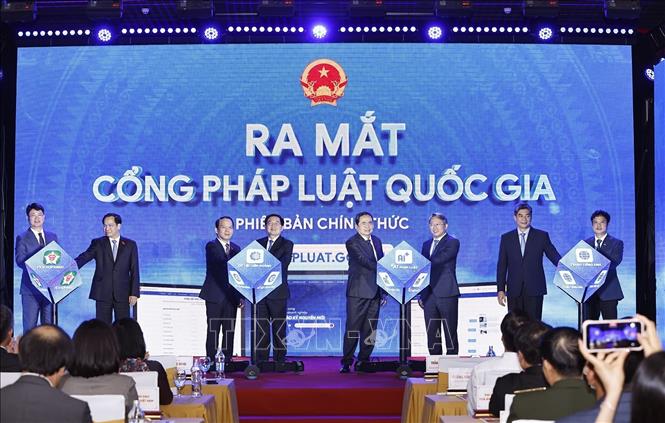
Speaking at the recent Vietnam Law Day 2025 Ceremony, National Assembly Chairman Tran Thanh Man emphasized: It is necessary to make the legal system a competitive advantage, and to build a law that is considered a breakthrough of breakthroughs. It is like a call to action for the entire political system, from the state apparatus to the whole society, to move from "only having the law" to "the law truly becoming a driving force for development".
Throughout this process, the Ministry of Justice plays a key role: it is both an advisory body of the Government and a focal point for organizing and implementing the Party and State's policies on law. Looking back at the work of building and enforcing the law, we see more clearly the great mission and responsibility of the Ministry of Justice in implementing Resolution 66 so that the law becomes a strong driving force for the country's development.
According to Deputy Prime Minister Le Thanh Long, the Judiciary plays a core role in advising on the building and perfecting of institutions and law enforcement, making an important contribution to state management, social governance and the cause of building and defending the Fatherland. Advising on the reconstruction of the national legal system in a synchronous, unified, stable, feasible and modern direction, creating a solid foundation for reforming the state apparatus, judicial reform, national digital transformation and promoting sustainable development is the task of the judiciary.
Therefore, immediately after Resolution 66-NQ/TW was issued, the Ministry of Justice coordinated with the Government Office and relevant ministries and branches to advise the Prime Minister to issue an implementation plan; at the same time, conferences to disseminate and train were organized nationwide.
Along with the development of laws, the Ministry of Justice promotes administrative reform and digital transformation in the legal field. A typical example is the construction and operation of a common digital platform - the National Legal Portal - with many breakthrough features, aiming at the goal of "accompanying people and businesses into the new era".
On November 7, 2025, at the ceremony to respond to Vietnam Law Day, the official version of the National Law Portal at phapluat.gov.vn was launched. Statistics show that the trial version in the past 5 months has attracted more than 1 million visits, about 200,000 questions answered by the legal AI assistant, and thousands of comments from ministries, branches and localities. The system is currently equipped with an open data warehouse connecting many ministries, branches and localities, integrated with VNeID, has an optimized multi-platform interface, an English page for investors and the international community, integrated with artificial intelligence to help analyze, summarize documents, and support user-friendly interface searches. The above figures and features are clear evidence of the initial effectiveness of the digital legal platform that the Ministry of Justice is chairing.
Thanks to this initiative and determination, many legal "bottlenecks" in public investment, land, housing, environment, energy conversion, etc. have been discovered and timely solutions have been recommended, freeing up resources and creating favorable conditions for businesses and people to feel secure in production and business.
In a recent speech, Politburo member, Party Central Committee Secretary, Head of the Party Central Committee's Internal Affairs Commission Phan Dinh Trac stated that innovation in thinking in law enforcement towards promoting the spirit of serving the people, creating development, and acting for the common interests of the team of officials in law enforcement is a necessary requirement.
Endogenous power for sustainable development
For a country to be strong, it must have a modern, transparent, stable and feasible legal system. That is the “soft foundation” for the breakthrough of the socio-economy. In the era of globalization, competition lies not only in technology or human resources, but also in the quality of institutions and the capacity to enforce the law.
Resolution 66-NQ/TW sets the target that by 2030, Vietnam will have a synchronous, unified, public, and transparent legal system; a favorable and safe legal environment for investment and business; and a legal competitiveness index among the leading groups in ASEAN. To achieve that, the Ministry of Justice continues to play a central role, both as an "institutional architect" and as a "conductor" coordinating law enforcement nationwide. Each cadre, civil servant, and public employee must be proactive and self-conscious in studying, researching, understanding the law, and complying with the law; at the same time, actively participate in propaganda and dissemination of legal knowledge in agencies, units, and localities. When each citizen understands the law, the law will truly become an endogenous strength, a solid foundation for a strong, prosperous, and everlasting Vietnam.
Minister of Justice Nguyen Hai Ninh emphasized that in 2025, in the context that the country has been continuing the revolution of streamlining the apparatus, implementing a two-level local government, the entire political system, especially the ministries, branches and local authorities are actively implementing Resolution No. 66-NQ/TW, organizing Vietnam Law Day will have more practical significance, arousing the lifestyle and working habits according to the Constitution and the law.
The head of the Judiciary believes that the spirit of Vietnam Law Day needs to be more deeply ingrained in law-making activities and law enforcement, from drafting, appraising, examining to checking, reviewing, systematizing legal documents, disseminating and educating the law, and must be measured and evaluated through specific products and documents in the spirit of the rule of law. Thereby, contributing to preventing and stopping acts of corruption, negativity, group interests, and localism in law-making work.
Vietnam Law Day is an occasion to look back on the journey of institutional innovation, and at the same time open up confidence in a new stage of development, when the law becomes a strong driving force for innovation, discipline and social progress. The law is not a barrier, but a launching pad for development. Every citizen who understands the law and lives by the law; every agency and organization that respects the law; every official and civil servant who acts according to the law - that is the endogenous strength, the solid foundation for a strong, prosperous and everlasting Vietnam...
Source: https://baotintuc.vn/thoi-su/doi-moi-cong-tac-phap-luat-dong-luc-kien-tao-phat-trien-dat-nuoc-trong-ky-nguyen-moi-20251109083122568.htm






















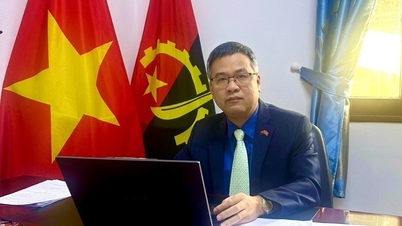

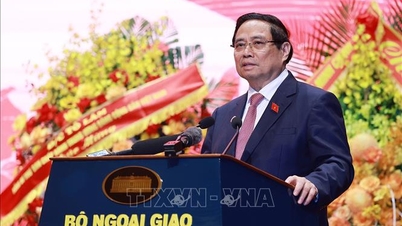
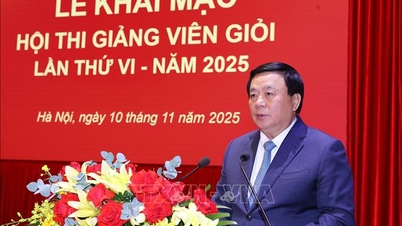







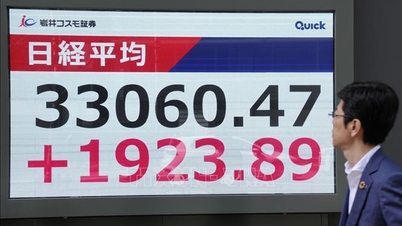
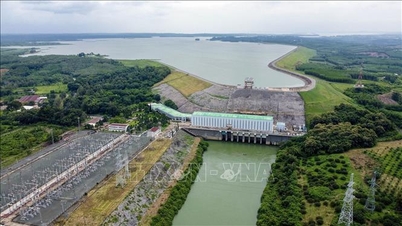

















































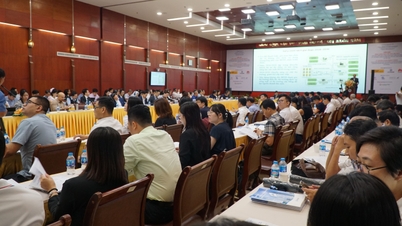










![Dong Nai OCOP transition: [Article 3] Linking tourism with OCOP product consumption](https://vphoto.vietnam.vn/thumb/402x226/vietnam/resource/IMAGE/2025/11/10/1762739199309_1324-2740-7_n-162543_981.jpeg)













Comment (0)